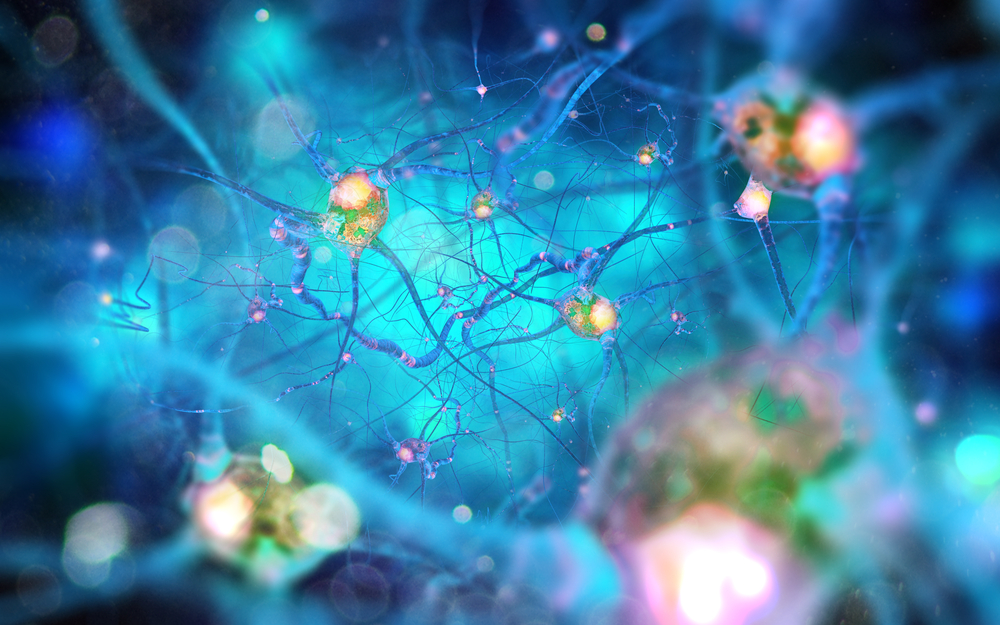Parkinson’s Mutation Causes Impaired Neuron Growth Throughout Life
Written by |

Andrii Vodolazhskyi/Shutterstock
Dopamine-producing neurons in the brain grow throughout life, but this growth is hindered by a genetic mutation that is associated with the development of Parkinson’s disease, a new study demonstrates.
The researchers hope these findings will lead scientists to “focus on enhancing the generation of new dopamine-producing neurons, rather than just trying to protect these neurons from dying later,” the investigators said in a press release.
The study, “PINK1 deficiency impairs adult neurogenesis of dopaminergic neurons,” was published in Scientific Reports.
Neurogenesis is the process by which new neurons — the nervous system cells that send electrical signals — are created. It was long thought that neurogenesis did not occur in the adult brain. However, emerging research has demonstrated that, at least in some instances, neurogenesis can occur throughout life.
Parkinson’s disease is caused by the impairment or death of neurons in the brain that produce a signaling molecule called dopamine. To date, the relevance of adult neurogenesis in the biological processes of Parkinson’s has not been clear.
To learn more, an international team of researchers first expanded on previous efforts to characterize regions of dopamine-producing neurons in the brains of zebrafish. These fish are a useful model for this kind of research because their nervous systems can easily be seen throughout development.
In keeping with prior findings, the researchers identified several dopamine-producing brain regions in the fish. They showed that in some, but not all, of these regions, there was evidence of continued growth of dopamine-producing neurons — in other words, neurogenesis. However, they noted, the rate of neurogenesis declined with increasing age.
The team then examined the impact of mutations in a gene called PINK1 on these parts of the fishes’ brains.
“We know that mutations in the PINK1 gene cause an early onset, inherited form of Parkinson’s disease,” said Oliver Bandmann, MD, PhD, a professor at the Sheffield Institute for Translational Neuroscience, in the U.K., and a co-author of the new study.
“If we can further our understanding about the impact of this genetic mutation on the dopamine-producing neurons we can develop new therapeutic approaches that aim to mitigate those effects,” Bandmann said.
The researchers demonstrated that fish with or without mutant PINK1 show similar production of dopamine-producing neurons up to about three months of age. However, whereas this neurogenesis continues in wild-type fish, it is impaired in fish with a PINK1 mutation.
Additional experiments further demonstrated that the growth of dopamine-producing neurons was hindered in fish with a PINK1 mutation. Such PINK1 mutations also consistently led to a decrease in the numbers of progenitor cells — that is, cells that are able to grow and differentiate into dopamine-producing neurons.
“Zebrafish lacking functional PINK1 display comparable expansion of DA [dopamine-producing] neuron populations in early life stages … but fail to expand these populations in later stages of life,” the researchers concluded.
Notably, while animal models like zebrafish can be convenient for research, findings in these models do not always translate into humans. To test the relevance of these findings in human tissue, the team experimented with organoids.
As their name implies, organoids are a type of three-dimensional cell culture, in which cells are grown in a lab in a physical setup that is designed to mimic the way cells are arranged within the body’s organs. In this case, the researchers used organoids of brain tissue. Consistent with the fish experiments, they found that PINK1 mutations impaired the neurogenesis of dopamine-producing neurons.
“This study attests to the power of using simple model organisms for pre-clinical translational research,” said Marysia Placzek, a study co-author and a professor at the University of Sheffield.
“We used the zebrafish to demonstrate that dopamine-producing neurons are generated into adulthood at a rate that decreases with age and that PINK1-deficiency impairs neurogenesis of these neurons, significantly in early adult life. Our international collaborators then confirmed these results in a human organoid cell model,” Placzek said.
Overall, the findings support the idea that biological processes that impact neurogenesis later in life could play important roles in diseases like Parkinson’s. Further research efforts to better understand these processes, as well as the exact role of PINK1, are ongoing.


